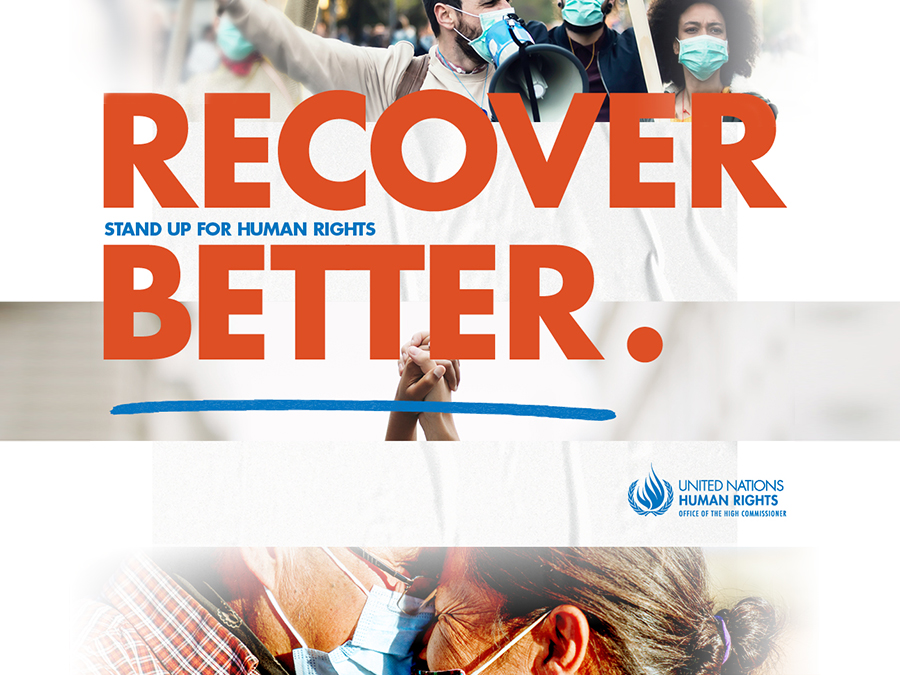Today, people across the world are celebrating Human Rights Day to honor the United Nation’s founding of the Universal Declaration of Human Rights Universal Declaration of Human Rights on Dec. 10, 1948. The declaration established the basic rights that people across the world are entitled to.
For this year’s Human Rights Day, the United Nations chose the theme of ‘recovery’ and encouraged the world to focus on recovering from the disparities heightened by the global pandemic. COVID-19 revealed long-standing health and social inequities that severely impacted people of color, people with disabilities and other under-represented communities. Here are just a few examples of the impact the pandemic has had on vulnerable populations across the United States:
- Black people are dying from COVID-19 at 1.9 times the rate of white people
- Members of the Latino/Hispanic community are at higher risk of getting sick and dying from unhealthy imposed living conditions
- An increased 13.2 million people have gone hungry since the pandemic
- The poverty rate increased by nearly eight million people since May
- 53% of adults reported negative impacts on their mental health
While the pandemic exposed the life-threatening impacts of poverty, racism and discrimination, it also brought people and communities together to provide resources like food, medical care and supplies, educational tools and even transportation to testing sites for those in need.
At DTE, we’ve focused recovery efforts on closing the gaps of social and economic inequities through our volunteerism efforts and through critical grants provided by our Foundation. In April, we partnered with leading organizations in Metro Detroit to provide 51,000 computers and free high-speed internet access to Detroit students attending school remotely from home through the Connected Futures program.
“The more we work to build equity and stand up for human rights, the stronger we’ll become,” said Diane Antishin, vice president of Human Resources and chief diversity, equity and inclusion officer. “We’re hopeful that together, we can be a beacon of progress and build a more equitable future for all people.”
We asked members of our Employee Resource Groups what Human Rights Day means to them and why it’s important. Here’s what they said:
Rosana Laurain, SOMOS
“One of the top human rights issues for our Latinx/Hispanic community is immigration in the United States, specifically the impact of the family separation policy. We are deeply concerned about the inability to locate and facilitate reunification of about 545 children with their parents, and the devastating and long-term trauma and impact this separation will have on these families.”
Chelsea Szpond, Power of Pride (POP)
“Intersectionality is a topic we all need to be familiar with and keep in mind. Any one person can face discrimination on various grounds that are interconnected (intersectional) – like race, class, gender identity, ability, age, orientation. Trans women of color are disproportionately impacted by fatal violence, according to the HRC.”
Shannon Brodie, SURGE
“We don’t only want an equitable future for DTE young professionals; we want it for all generations, all genders, all ethnicities within DTE and beyond.”
Jason Kupser, FAMILY
“Human rights are more than basic needs like water, food, shelter and safety. it’s the opportunity to have a family, get an education and go to work. It is freedom of speech, intellectual thought, religion and sexual orientation. It is void of oppression and supportive of excellence.”
Read more about health inequities on the CDC’s website and visit their Racial Data Tracker to know how COVID-19 is affecting people of color. Learn how you can help support your community.
